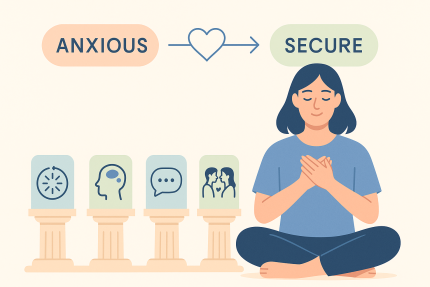The Ins and Outs of Personal Loans: A Comprehensive Guide
- 29 May 2022

Personal loans have become increasingly popular in recent years as they offer a quick and convenient way to borrow money. Unlike credit cards, personal loans provide a fixed amount of money upfront that you pay back with interest over time. However, it's essential to understand how they work before considering taking out a personal loan.
What are Personal Loans?
Personal loans are unsecured loans that you can use for almost anything, including consolidating debt, home renovations, and even starting a business. You borrow a fixed amount of money, typically ranging from $1,000 to $100,000, and pay it back in monthly installments over a set period, usually two to five years.
Interest Rates and Fees
Interest rates on personal loans vary depending on the lender, the amount borrowed, and your credit score. The better your credit score, the lower the interest rate you can expect to pay. On average, personal loan interest rates range from 6% to 36%. However, some lenders may charge additional fees, such as origination fees or prepayment penalties, so it's essential to read the fine print before signing up for a personal loan.
Pros and Cons of Personal Loans
Personal loans have several advantages, including the ability to borrow a fixed amount of money upfront and the flexibility to use the funds for almost any purpose. They also have lower interest rates than credit cards and can help you consolidate debt into one easy-to-manage payment.
However, personal loans also have some disadvantages. They often come with higher interest rates than secured loans, such as home equity loans, and may require a good credit score to qualify. Additionally, you may face prepayment penalties or other fees, which can add up over time.
Alternatives to Personal Loans
If you're unable to qualify for a personal loan or are wary of the high interest rates, there are several alternatives to consider. For example, you can consider a secured loan, such as a home equity loan or line of credit, which may offer lower interest rates. You can also consider a balance transfer credit card if you have high-interest credit card debt.
How to Qualify for a Personal Loan
To qualify for a personal loan, you typically need a good credit score, a stable income, and a low debt-to-income ratio. Lenders will also look at your employment history and credit history to determine your creditworthiness. If you have a high credit score, you may be able to qualify for a lower interest rate, which can save you money over the life of the loan.
How to Apply for a Personal Loan
To apply for a personal loan, you can either apply online or in person at a bank or credit union. You'll need to provide personal and financial information, including your income, employment history, and credit score. The lender will also require you to submit documentation, such as pay stubs, tax returns, or bank statements, to verify your income and employment.
Once you've applied for a personal loan, the lender will review your application and either approve or deny your loan request. If approved, you'll receive the funds in a lump sum, and you'll be required to make monthly payments to pay back the loan with interest.
How to Use a Personal Loan
One of the benefits of a personal loan is that you can use the funds for almost any purpose. However, it's important to use the money wisely to avoid taking on unnecessary debt. Some of the most common uses for personal loans include:
- Consolidating high-interest debt into one easy-to-manage payment
- Financing home renovations or repairs
- Covering unexpected medical expenses or emergency bills
- Paying for a wedding, vacation, or other large expenses
Conclusion
Personal loans can be a convenient way to borrow money, but it's essential to understand how they work before taking one out. Be sure to shop around for the best interest rates and fees, read the fine print, and consider all alternatives before signing up for a personal loan. With careful planning and consideration, a personal loan can help you achieve your financial goals.




